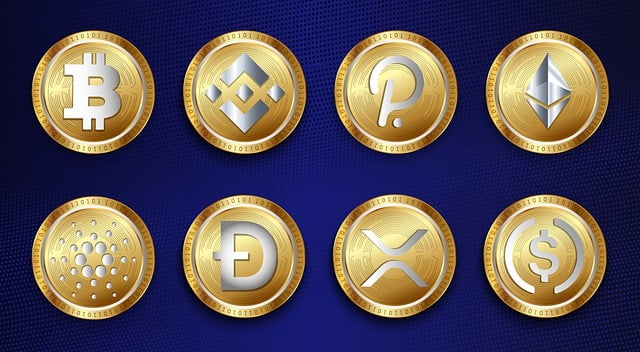
Cardano stands out in the blockchain space due to its unique design, prioritizing security and scalability from its inception. It offers Plutus, a secure and expressive domain-specific language (DSL) for smart contracts, ensuring code safety and maintainability through rigorous formal verification. Cardano's ecosystem also includes Marlowe, which treats contracts as first-class citizens, enabling developers to create complex dApps with enhanced flexibility and interoperability. With Plutus and Marlowe, Cardano is poised to revolutionize smart contract development, attracting developers building decentralized solutions on its secure and efficient platform.
Cardano, a blockchain platform aiming to revolutionize smart contracts, has introduced groundbreaking innovations with Plutus and Marlowe. This article explores Cardano’s unique approach, delving into the secure and flexible programming language of Plutus and decentralized workflows facilitated by Marlowe. We also discuss the future prospects of smart contracts on Cardano, highlighting its potential to transform various industries. Discover how these advancements are reshaping the blockchain landscape.
- Cardano's Unique Approach to Smart Contracts
- Introducing Plutus: A Secure and Flexible Language
- Marlowe: Decentralized Workflows and Applications
- The Future of Smart Contracts on Cardano
Cardano's Unique Approach to Smart Contracts

Cardano takes a unique approach to smart contracts, focusing on security and scalability from the ground up. Unlike traditional blockchain platforms that introduced smart contracts as an afterthought, Cardano was designed with this functionality in mind, ensuring a robust and flexible framework. The platform’s native language, Plutus, offers a secure and expressive way to write smart contracts using a domain-specific language (DSL), enhancing safety and maintainability.
This approach sets Cardano apart by providing a more structured and controlled environment for developing decentralized applications (dApps). With its rigorous formal verification process, Cardano aims to ensure the accuracy and reliability of smart contracts, reducing potential vulnerabilities. This innovative design promises to unlock a new era of secure and efficient blockchain-based solutions, solidifying Cardano’s position as a leading force in the evolving landscape of decentralized technologies.
Introducing Plutus: A Secure and Flexible Language

Cardano, a blockchain platform known for its focus on security and sustainability, has introduced Plutus, a secure and flexible language for smart contracts. Unlike traditional programming languages that can be vulnerable to errors and exploits, Plutus is designed with a robust formal verification process, ensuring that all code is safe and secure before it’s executed on the Cardano network.
This innovative language allows developers to write smart contracts in a way that’s both understandable and auditable. Plutus provides a range of features, including support for advanced logic and complex data structures, making it suitable for building decentralized applications (dApps) with intricate requirements. By leveraging Plutus, Cardano aims to create a more robust and user-friendly ecosystem for developers looking to build on its blockchain platform.
Marlowe: Decentralized Workflows and Applications

Marlowe, a component of Cardano’s smart contract ecosystem, introduces a revolutionary approach to decentralized workflows and applications. Unlike traditional programming languages, Marlowe allows for the creation of smart contracts as first-class citizens on the blockchain, offering a unique level of flexibility and composability. Developers can design complex protocols and applications by defining rules and specifying actions in a declarative manner, enabling efficient automation and coordination.
This innovative framework supports the development of decentralized applications (dApps) that can manage and execute tasks autonomously, from simple payment systems to sophisticated supply chain management solutions. By leveraging Marlowe’s capabilities, Cardano users can build trustless and transparent systems, enhancing interoperability across various platforms and industries while maintaining data integrity and security.
The Future of Smart Contracts on Cardano

The future of smart contracts on Cardano looks promising with the introduction of Plutus and Marlowe. Plutus, a sophisticated programming language, brings advanced functionality to smart contracts by allowing for more complex logic and security measures. This evolution in smart contract capabilities is set to enhance the overall efficiency and reliability of decentralized applications (dApps) on the Cardano network.
Marlowe, another groundbreaking innovation, introduces a new approach to smart contract management, focusing on modularity and composability. By breaking down smart contracts into smaller, reusable components, Marlowe simplifies development and deployment processes. This modular design promises to make Cardano an even more attractive platform for developers looking to build decentralized solutions, fostering growth and adoption in the cardano ecosystem.
Cardano’s innovations in smart contracts, with Plutus and Marlowe, represent a significant leap forward in the blockchain space. By offering a secure, flexible language for contract development and decentralized workflow solutions, Cardano is positioning itself as a leader in the next generation of smart contract technology. As these advancements mature, we can expect to see more complex and robust applications built on the Cardano network, further solidifying its place as a go-to platform for blockchain innovation.

